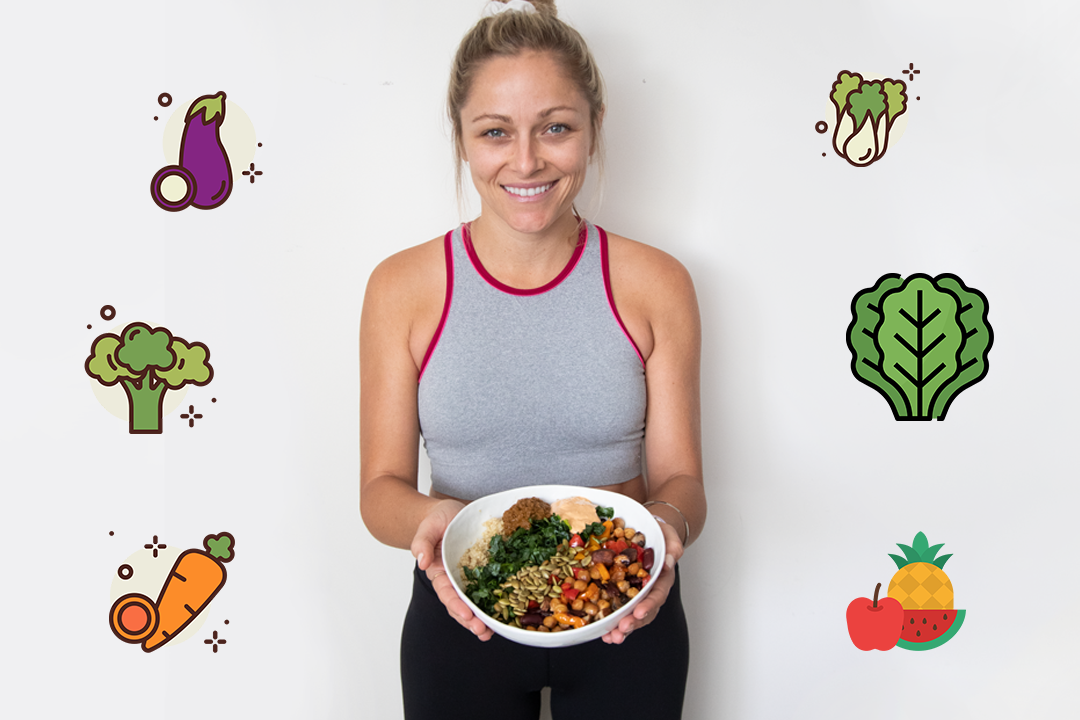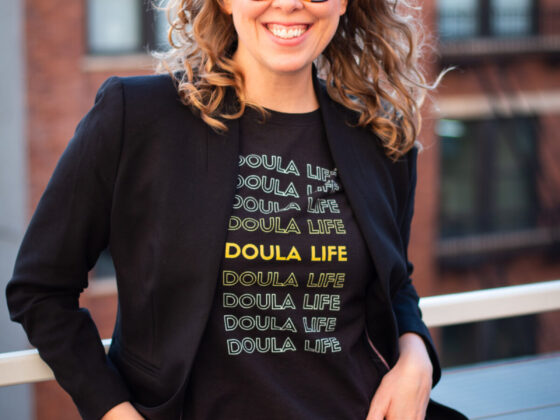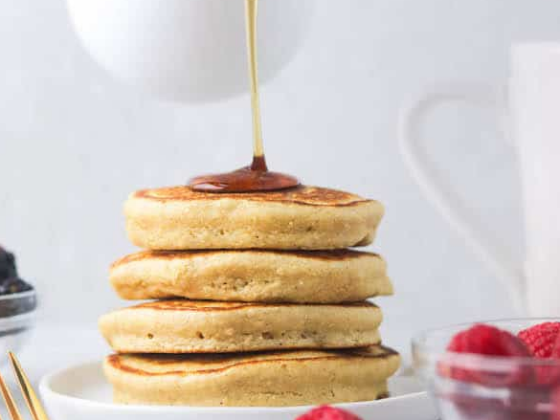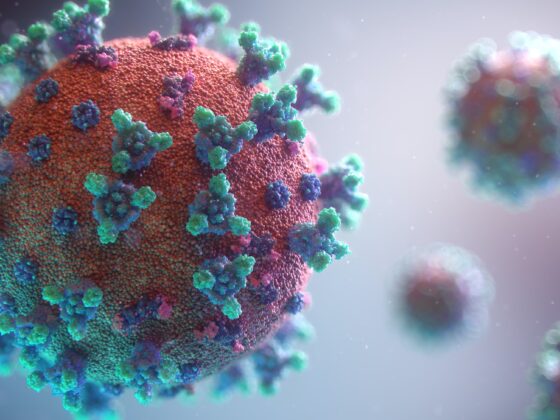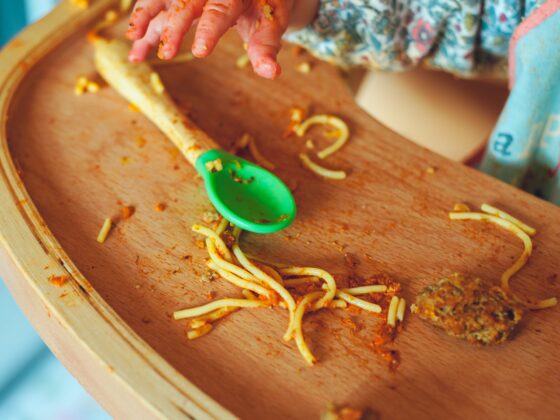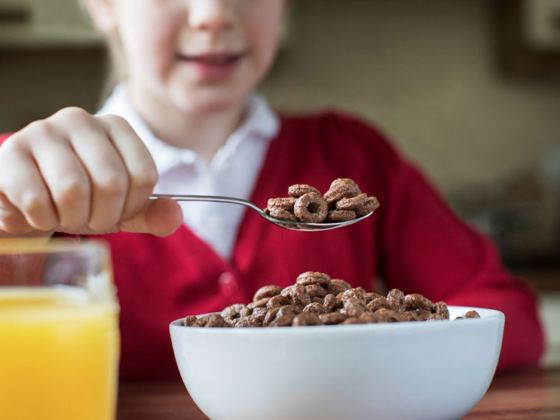When it comes to having a plant-based pregnancy, you can be faced with a lot of misinformation and discouragement about your well-intended choices. Trying to find accurate advice often ends up with you stuck in a Google rabbit hole, swamped by conflicting ideas.
Then comes the self-doubt about whether it’s healthy or even possible to stay vegetarian or vegan while pregnant, leaving you to consider sacrificing your beliefs and values for a healthy pregnancy.
In this podcast episode, Sarah is joined by Crysta Pollitt MS, RDN, who helps us to feel confident about plant-based pregnancy choices during pregnancy and gives us the guidance we need to ensure we get all the important nutrients needed to grow a healthy baby.
Topics include:
- Supplementation
- Important nutrients and vitamins during pregnancy
- How to build a healthy plate
- Nutritious breakfast ideas
- Plant-based protein powders
- Soy
- Tasty plant-based snack ideas
If you’ve been happily plodding along with your plant-based diet but are suddenly hearing that you need to be eating meat, dairy and fish for a healthy pregnancy, this can cause major confusion and make you start to doubt yourself and your beliefs.
When you eventually emerge from your Google rabbit hole, stressed out by conflicting ideas,
you may even be questioning whether it’s healthy or even possible to stay vegetarian or vegan while pregnant. This might even leave you considering sacrificing your values for a healthy pregnancy.
In this podcast episode, Sarah is joined by Crysta Pollitt MS, RDN, who helps us to feel confident about plant-based pregnancy choices during pregnancy and gives us the guidance we need to ensure we get all the important nutrients needed to grow a healthy baby.
You’ll find out all about:
- The importance of supplementation
- Specific nutrients and vitamins you need to ensure you’re getting enough of
- How to build a healthy plate on a plant-based diet
- Nutritious and quick breakfast ideas
- Recommendations for plant-based protein powders
- If soy is ok to eat
- Some of the best plant-based snacks for pregnancy
For those of you who don’t want to give up or want to start a plant-based diet but worry about the impact on your pregnancy, this one is definitely for you!
What are some specific nutrients or vitamins that you might be worried about getting enough of if you’re eating a plant-based diet?
It’s not necessarily that a plant-based diet falls short, but if you’ve already decided that you want to eat plant-based, the question is now how to do it during pregnancy. So supplementation, fortified foods and a well-rounded diet is 100% the way to go.
With plant-based pregnancy, Crysta 100% recommends a prenatal vitamin and it’s important to know that they are not all the same and all have different nutrients in there. Supplementing even before you’re pregnant is also important.
The first things to look at with supplementation for plant-based pregnancy is choline, Omega-3s and B12. Plant-based diets in general can also fall short of zinc, calcium and iron. Focus on fortified foods mostly for calcium and definitely for iron, as iron supplementation can cause some gastric distress. Definitely get your iron levels tested first before going down the supplementation route.
The DHA/EPA supplementation is really important. Even if you’re having some seaweed in your diet, it’s still important to supplement with DHA. It’s just a plant-based supplement and usually will be algae oil. So you’ll get the DHA/EPA supplement and sometimes there’s B12 or choline in there too, so you can kill two birds with one stone.
Choline is still a vitamin that some women are less familiar with, despite its significance. Low maternal dietary choline intake has been reported to be a risk factor for neural tube defects so we certainly need to start talking about choline and how to make sure you’re getting enough of it. The recommended intake for pregnant women is 450 milligrams. Some food sources that are good for choline include wheatgerm and peanut butter
How can I build a healthy plate on a plant-based diet?
Protein is the most important thing and we have to make sure there’s protein with each meal. So build each meal around at least one type of plant protein and then make sure you have your fruits and vegetables. When you’re choosing your protein, make sure that it’s a primary source of protein, which would be foods like beans, legumes, lentils and chickpeas, any type of soy and then certain seeds, like hemp seeds will count as a protein.
Fat is also important as it will help you absorb all the other nutrients. This is why plant-based ways of eating are so healthy because they are very nutrient dense and they have antioxidants and phytochemicals, and use the plants.
Make sure that when you are choosing a grain to make it a whole grain. Especially in the first trimester, a lot of people just want to eat carbs, so maximize them and have carbs made from at least one whole grain with some seeds in there if you could handle it. Each one of those grains or starch choices is an opportunity to boost your protein and even your fat for that meal instead of missing out.
What are the recommendations for plant-based protein powder?
There’s nothing out there that’s perfect and what you need to pay attention to with plant-based protein powders is heavy metal. A lot of the time it’s just not regulated, so if it’s coming from a lot of rice and pea, it might be a little higher in heavy metals.
There is a certain level of heavy metals that is safe in pregnancy. It’s so easy for dietitians to just say ‘use whey protein’ but then when you get into the plant-based world, it gets a bit confusing. The soy protein powders are generally fine but what you want to be looking for is third party testing, caffeine and added sweeteners.
Nature’s Way plant-based protein’s ingredients are just soy protein (99.99%) and vitamin B1.
It’s unflavored and so you can just throw it in with your ingredients and add flavor that way.
What are some ways that I can ensure, especially if I’m vegan, that I’m getting enough calcium?
A big myth is that you need dairy for calcium. Calcium is very available in many plant foods. The absorption rate of the calcium fortified milks is a little bit lower than dairy milk (around 25% lower) but is still recommended.
You can also turn to plant-based calcium rich foods, like sesame seeds, soy, tofu that is set in calcium is very high in calcium and dried figs happen to be high in calcium as well. Tahini is another good choice because of the sesame seeds but you need to make sure the seeds are roasted during pregnancy for food safety reasons. Cruciferous vegetables like kale and bok choy are very high in calcium as well.
Is there anything wrong with eating soy?
Most people can eat soy unless they have thyroid issues. Soy has been subjected to very negative press but one of the biggest myths about plant-based pregnancy or just plant-based eating is that soy is bad for you.
There have been new studies that are showing that soy is actually good for fertility and connected to lower risks of cancer. There’s nothing wrong with soy but it’s still important to vary your proteins and your diet in general to meet your nutrient needs.
Try to choose less processed soy like natural tofu and fermented soy such as tempeh and miso is an excellent choice. Crysta advises including some soy every day.
What are some good plant-based snacks for pregnancy?
Getting used to the habit of small, frequent meals in the beginning of your pregnancy is important, especially as in your third trimester, you may experience symptoms of indigestion. In your snacks, you’re looking for at least two of those parts of the plant-based plate.
Energy balls packed with protein, fiber and fat are great and if you’re craving crunchy, salty chips, lentil chips are a great snack and have a little bit more protein. Peanut butter, fruits and nuts are all great too for nutritious snacking.
Show Notes:
3:23 – “It’s completely possible to have a healthy pregnancy without eating animal protein.”
4:53 – “With plant-based pregnancy, I 100% recommend a prenatal vitamin.”
5:16 – “The first thing I look at with supplementation for plant-based pregnancy is choline, Omega-3s and B12.”
9:18 – “We have to make sure there’s protein with each meal.”
20:42 – “One of the biggest myths about plant-based pregnancy or just plant-based eating is that soy is bad for you.”
25:48 – “In pregnancy, really pay attention to the quality of the food and to the characteristics of the food that you are craving.”
26:27 – “We’re not afraid of carbs in the plant-based pregnancy world. We’re just so focused on protein.”
29:27 – “Focus on the time during your pregnancy to really nourish yourself.”
More about Crysta:

Crysta is a US Registered Dietician Nutritionist who helps women and families nourish themselves in the best way possible. She focuses on prevention and wellness while also treating specific conditions.
Her First Taste business provides nutrition programs that help women and their families through the first 1,000 days of life. First Taste offers evidence based, practical solutions with a focus on plants that can prevent or treat issues around food and nutrition.
As a mother herself, she helps to empower women through sharing the necessary tools to make positive food and diet choices at one of the most important life stages.
